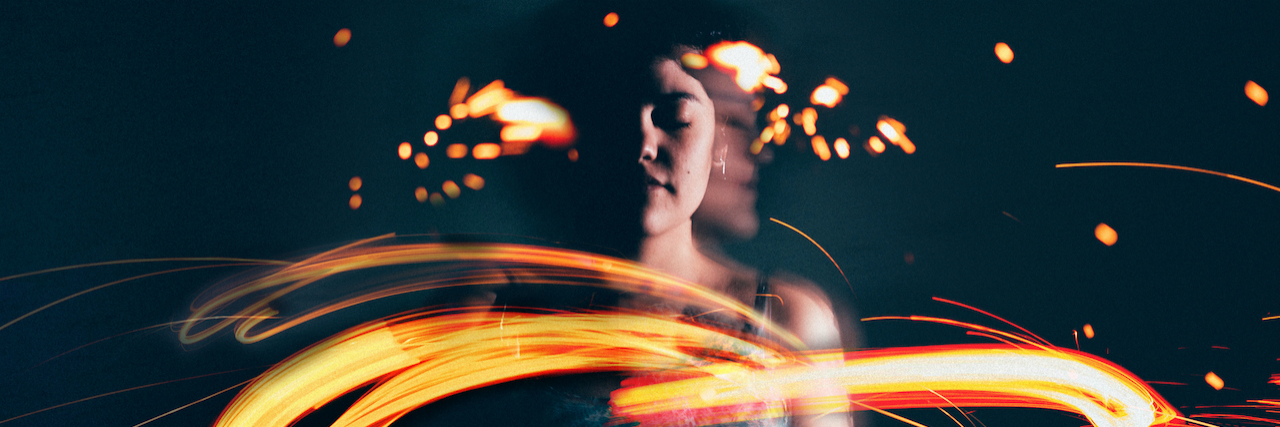When I learned about borderline personality disorder, a lot of pieces of my life fell into place in my head. When I learned about C-PTSD, even more of the pieces fell into place. But for all that these labels could help explain how I had been impacted by my past, there were still pieces that the mainstream medical model couldn’t identify or place. When I finally learned about religious trauma, the rest of the pieces fell together, and the puzzle that was my past started to come into view.
I identified three major ways that I have experienced religious trauma and how that has impacted me.
1. The use of religion to exercise control and perpetrate abuse.
I grew up under the kind of fundamentalist religious ideology which rejected all scientific understandings of the world and prescribed pure or correct ways of being and living. Religious and household authorities were expected to ensure the rest of the community adhered to these standards, reprimanding or punishing as necessary. It was a common practice to shame or exclude people to convince them to comply, and, occasionally, a repeat offender might be asked to leave. More often, though, the effects of shaming and ostracizing caused people to leave on their own, as I eventually did.
The use of so-called “corporal punishment” (physical abuse) as way to correct children’s behavior was excused and sometimes encouraged using the religious texts. During my developing years, I learned that if I made a mistake, even a little one, I could be punished in this way. Some of those “mistakes” were asking for help at the wrong time, being afraid at night, acting like a child, and other normal childhood behaviors that were labelled as defiance. This led me to grow up extremely anxious, hyper-vigilant and perfectionist, to avoid making the mistake of being perceived as oppositional in any way.
2. A culture of shame and self-denial.
In the religious communities that I was raised in, shame is an expected part of life. They expect to feel shame from their God, shame from their family and friends, shame from the community leaders, and most importantly, internalized shame. If you don’t feel shame, they think there’s something wrong with you. Now that I am in trauma recovery, I know that shame is actually super counter-productive to growth or making effective changes in life. This culture of shame limited my capacity for self-growth until I left the community, and there are still areas of my growth where shame continues to be a challenge.
Similarly, we were expected to deny our humanity, deny our “earthly selves,” and only seek God. This was interpreted by my community as rejecting the inherent needs and knowings we have inside of ourselves, such as the knowing that I am queer, or my inherent need to learn and understand things more deeply. These and many other pieces of myself were expected to be denied internally before they even had a chance to be denied by the community. And for a long time it worked. Between the messages from the religious community who told me how to act and live my life, and the physical and emotional abuse I experienced, I was molded into exactly what I was expected to be. It took until my mid-20s, and multiple identity crises, to start the process of figuring out who I really am underneath the person they all decided I should be.
3. A fundamental misunderstanding of the world we live in.
I believed the Earth was 6,000 years old and that dinosaurs and humans lived side by side. I believed that anyone who didn’t agree with our religion was unhappy, confused and dangerous. I believed the apocalypse was imminent, and therefore no point in learning or doing anything about climate change or wars, etc. These beliefs, and so many others, hindered my ability to connect with reality, engage with sources of truth and fact, or meaningfully communicate with anyone outside the religious community.
When I left religion, it took me a long time to unlearn these misunderstandings. I spent a few years in awe as I dove into learning about the universe, evolution, human history, and what life is like outside of my sheltered religious experience. After I learned about the fabric of my reality, I began to learn about various social issues and the changes I needed to make to reduce my harmful impacts, leading me to one of my core values, harm reduction.
But it’s been most difficult for me to unlearn the mistrust of others. I have difficulty with deciding who deserves my trust, and with developing and maintaining that trust. I grew up believing that the whole world outside of our little bubble was untrustworthy. Then I discovered that it was actually my own community, my friends and family, those closest to me, who were unworthy of my trust. For a long time, it felt impossible to know who to trust. I’ve had to learn what I consider to be the qualities of a trustworthy person, so that when I get to know someone I can use that information to assess whether I want to trust them or not.
Understanding my experiences through the lens of religious trauma has helped me better understand my feelings and behaviors. As I work through my religious trauma, I am finding it possible to learn recovery skills that had previously felt out of reach. I’ve been told by many clinicians that digging up my backstory will only interrupt my recovery efforts, but my experience has been the opposite. The more I understand about my story, the more possible recovery has become.
Getty image by RoxiRosita

